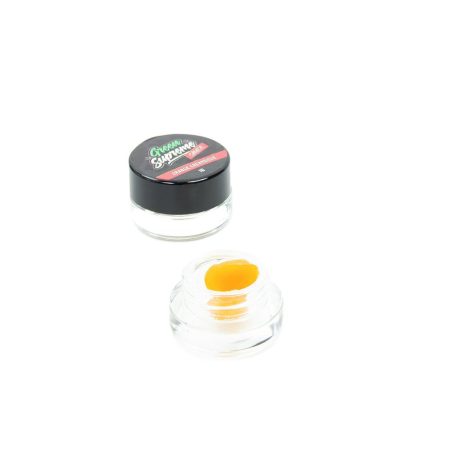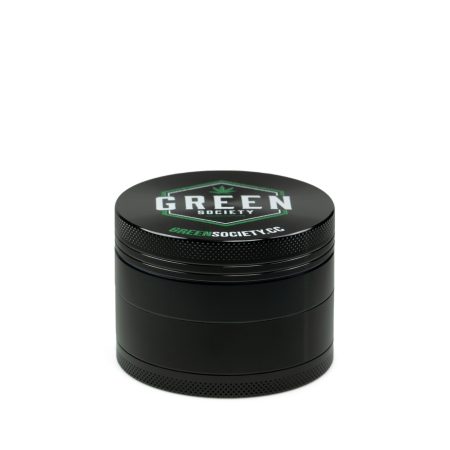Marijuana
Understanding the Health Benefits of CBD
CBD is everywhere these days and people are reaching for it hoping to address everything from sleep troubles to aches and pains. Most folks do not realize that FDA approval of a CBD-based medication marks a huge shift in how science views this once-misunderstood cannabis extract. What is surprising is that CBD will not get you high, but could one day change how we treat conditions like epilepsy, anxiety, and more.
Table of Contents
- What Is Cbd And How Does It Work?
- Why Are The Health Benefits Of Cbd Relevant?
- Key Concepts In Cbd’s Therapeutic Potential
- Real-World Applications Of Cbd For Health
- Understanding The Science Behind Cbd Effects
Quick Summary
| Takeaway | Explanation |
|---|---|
| CBD does not produce a high. | Unlike THC, CBD is non-psychoactive, meaning it will not create intoxicating effects. |
| CBD interacts with the endocannabinoid system. | CBD modulates cannabinoid receptors, influencing various physiological processes within the body. |
| CBD shows promise for anxiety and pain management. | Preliminary research suggests CBD may help alleviate symptoms of anxiety, stress, and pain. |
| Epidiolex is FDA-approved for epilepsy. | This medication illustrates CBD’s recognized medical applications, particularly for specific epilepsy syndromes. |
| Ongoing research continues to reveal CBD’s benefits. | Scientists are uncovering complex interactions and potential therapeutic uses of CBD in various health contexts. |
What is CBD and How Does It Work?
Cannabidiol (CBD) is a naturally occurring compound found in cannabis plants, specifically within the Cannabis sativa species. Unlike its more famous cousin tetrahydrocannabinol (THC), CBD does not produce psychoactive effects, meaning it will not make you feel “high”. Research from the National Institutes of Health demonstrates that CBD interacts uniquely with the human body’s endocannabinoid system.
Understanding CBD’s Chemical Structure
CBD belongs to a class of compounds called cannabinoids, which are characterized by their specific molecular structure and interaction with the body’s biological systems. These compounds are remarkable for their potential therapeutic properties. At its core, CBD is a complex molecule that does not directly bind to cannabinoid receptors like THC does, but instead modulates their activity and influences other receptor systems.

The Endocannabinoid System Connection
The human body contains an intricate network called the endocannabinoid system (ECS), which plays a crucial role in regulating various physiological processes. This system includes cannabinoid receptors (CB1 and CB2) located throughout the brain, nervous system, and immune cells. When CBD enters the body, it interacts with these receptors indirectly, helping to promote balance and potentially supporting multiple bodily functions.
Neurological research suggests that CBD can influence several non-cannabinoid receptors, contributing to its wide-ranging potential therapeutic effects.
Key aspects of CBD’s interaction with the body include:
- Modulating neurotransmitter release
- Supporting potential anti-inflammatory responses
- Potentially helping regulate stress and anxiety mechanisms
Understanding CBD requires recognizing its complexity as a natural compound with nuanced interactions within human biological systems. Its non-intoxicating nature and potential health benefits make it an intriguing subject of ongoing scientific research and medical exploration.
To help readers quickly grasp key scientific and therapeutic concepts related to CBD, the following table organizes central terms and mechanisms discussed in the article.
| Key Concept | Explanation |
|---|---|
| Endocannabinoid System (ECS) | A biological system involved in regulating physiological and cognitive processes using CB1 and CB2 receptors. |
| Cannabinoid Receptors (CB1 & CB2) | CB1 receptors are found mainly in the brain and nervous system; CB2 mainly in immune cells throughout the body. |
| Psychoactive Effects | Mental or behavioural effects produced by compounds such as THC; CBD does not cause these intoxicating effects. |
| Neuroprotective Potential | CBD may help shield nerve cells from damage, relevant for conditions like epilepsy, Alzheimer’s, and Parkinson’s. |
| Anti-inflammatory Properties | CBD may assist in reducing inflammation, contributing to benefits in pain relief and chronic health management. |
| Modulation of Neurotransmitters | CBD affects neurotransmitter release without directly activating cannabinoid receptors, influencing mood and pain. |
| FDA Approval (Epidiolex) | Example of CBD’s recognized medical use, with Epidiolex approved for treating certain epilepsy syndromes. |
Why Are the Health Benefits of CBD Relevant?
In an era of increasing health consciousness and alternative wellness approaches, CBD has emerged as a significant compound capturing widespread medical and public interest. The FDA recognizes the growing attention surrounding CBD’s potential therapeutic applications, signaling its genuine medical relevance beyond popular wellness trends.
The Modern Healthcare Context
Modern healthcare increasingly seeks holistic and natural treatment alternatives that minimize pharmaceutical interventions. CBD represents a promising option for individuals seeking complementary wellness strategies. Its potential to interact with multiple biological systems without producing intoxicating effects makes it particularly attractive for those exploring natural health solutions. Learn more about CBD’s potential benefits to understand its comprehensive wellness approach.
Addressing Contemporary Health Challenges
CBD’s relevance stems from its potential to address several contemporary health challenges that conventional medicine sometimes struggles to manage comprehensively. Chronic conditions such as anxiety, inflammation, sleep disorders, and pain management are areas where CBD demonstrates promising preliminary research results. Scientific investigations suggest that CBD’s interaction with the endocannabinoid system could provide nuanced therapeutic interventions.
Key areas of potential health relevance include:
- Managing stress and anxiety symptoms
- Supporting pain management strategies
- Potentially reducing inflammation
- Promoting better sleep quality
- Offering potential neurological support
While research continues to evolve, CBD represents a fascinating intersection of natural compounds and medical potential. Its growing acceptance reflects a broader shift towards understanding holistic wellness approaches that consider complex bodily interactions beyond traditional pharmaceutical interventions. Responsible exploration and continued scientific research will further illuminate CBD’s true therapeutic potential.
Key Concepts in CBD’s Therapeutic Potential
CBD has emerged as a fascinating compound with multifaceted therapeutic potential, offering promising insights into holistic health management. Comprehensive research demonstrates CBD’s complex interactions with human biological systems, revealing nuanced mechanisms that extend far beyond traditional treatment approaches.
Neurological and Psychiatric Applications
The therapeutic potential of CBD is particularly intriguing in neurological and psychiatric domains. Preliminary studies suggest its capacity to modulate brain chemistry without producing psychoactive effects. Explore more about CBD’s potential benefits to understand its comprehensive neurological implications. Researchers are investigating CBD’s potential in managing conditions such as epilepsy, anxiety disorders, and potential neuroprotective interventions.
Mechanisms of Biological Interaction
CBD’s therapeutic potential stems from its sophisticated interaction with multiple biological systems. Unlike traditional pharmaceuticals that often target singular pathways, CBD demonstrates a more holistic approach. Scientific research indicates that CBD may exert neuroprotective effects by reducing oxidative stress and inflammation, presenting potential applications in neurodegenerative conditions like Alzheimer’s and Parkinson’s disease.
Key therapeutic mechanisms include:
- Modulating neurotransmitter release and receptor activity
- Reducing inflammatory responses
- Supporting potential neuroprotective processes
- Regulating stress and anxiety mechanisms
- Interacting with multiple biological signaling systems
Understanding CBD’s therapeutic potential requires recognizing its complexity as a natural compound capable of nuanced biological interactions. While research continues to evolve, the current scientific landscape suggests CBD represents a promising frontier in complementary and integrative health approaches, offering hope for more holistic treatment strategies.
Real-World Applications of CBD for Health
CBD has transitioned from an alternative wellness trend to a scientifically recognized compound with tangible health applications. Clinical studies demonstrate its potential in managing various medical conditions, offering promising insights into holistic health management.
Medical Treatment and Therapeutic Interventions
One of the most significant real-world applications of CBD is in neurological treatment. The FDA has approved Epidiolex, a CBD-based medication, for treating specific forms of epilepsy such as Dravet syndrome and Lennox-Gastaut syndrome. This landmark approval represents a critical milestone in recognizing CBD’s medical potential. Learn more about CBD’s potential for chronic pain management to understand its broader therapeutic implications.
Mental Health and Wellness Applications
Beyond neurological treatments, CBD shows promise in addressing mental health challenges. Preliminary research suggests potential benefits in managing anxiety and sleep disorders, providing a natural alternative to traditional pharmaceutical interventions. Individuals experiencing stress, anxiety, and sleep disruptions might find CBD a complementary approach to their wellness strategy.
Key real-world health applications include:
- Managing epileptic seizures in specific syndromes
- Supporting anxiety and stress reduction
- Potentially improving sleep quality
- Offering alternative pain management strategies
- Providing potential neuroprotective support
As scientific understanding evolves, CBD continues to demonstrate its versatility as a natural compound with multifaceted health applications. While more comprehensive research is needed, current evidence suggests CBD represents a promising frontier in integrative health approaches, bridging traditional medicine with holistic wellness strategies.
The table below summarises the possible real-world health applications of CBD as described throughout the article, helping readers compare these uses at a glance.
| Application Area | Description |
|---|---|
| Epileptic Seizure Control | Used in FDA-approved medication for certain rare forms of epilepsy. |
| Pain Management | Potential to help alleviate chronic and acute pain without the psychoactive effects of THC. |
| Anxiety and Stress Relief | Research indicates CBD may assist in reducing anxiety and related symptoms. |
| Sleep Improvement | May promote better sleep quality for individuals with sleep disturbances or insomnia. |
| Inflammation Reduction | Early studies indicate a possible role in lowering inflammation that contributes to chronic issues. |
| Neuroprotection | Potential to support neural health and protect against neurodegenerative changes. |
Understanding the Science Behind CBD Effects
CBD represents a complex biological compound with intricate interactions within human physiological systems. Scientific research reveals sophisticated mechanisms underlying its potential therapeutic effects, demonstrating how this natural molecule influences multiple biochemical pathways.
Neurological and Receptor Interactions
Unlike THC, CBD does not directly bind to cannabinoid receptors but instead modulates their activity through indirect mechanisms. Explore why CBD doesn’t produce intoxicating effects, which distinguishes its neurological interactions from other cannabis compounds. This unique property allows CBD to potentially provide therapeutic benefits without psychoactive consequences.
Biochemical Signaling Pathways
CBD’s scientific complexity emerges from its interaction with multiple biological systems. Molecular studies indicate that CBD acts as an indirect antagonist of cannabinoid receptors, altering signaling pathways involved in inflammation, neuroprotection, and neurotransmitter regulation. This nuanced approach enables CBD to potentially influence various physiological processes without causing dramatic systemic changes.
Key scientific mechanisms of CBD include:
- Modulating serotonin receptor functionality
- Reducing inflammatory protein production
- Supporting neurogenesis and neural plasticity
- Interacting with pain perception pathways
- Regulating endocannabinoid system balance
Understanding CBD’s scientific effects requires recognizing its role as a molecular communicator, capable of subtle yet potentially significant biological interactions. As research continues, scientists are uncovering increasingly sophisticated insights into how this remarkable compound influences human health at the cellular and systemic levels.

Ready to Experience the Real Benefits of CBD?
Living with daily stress, pain, or restless nights can leave you searching for a natural solution. In this article, we explored how CBD works with your body’s endocannabinoid system to support better balance, well-being, and holistic health. If you want trustworthy products that help you put this knowledge into action, GreenSociety.cc is here for you.

Our online shop offers a wide selection of carefully sourced CBD products, including oils, edibles, and capsules. Each option is crafted to help you manage pain, anxiety, and sleep issues with confidence. Visit GreenSociety.cc and browse the popular items trusted by Canadians who value quality, safety, and speed. Make a choice for your health today and discover the difference CBD can make in your daily routine.
Frequently Asked Questions
What is CBD and how does it work?
CBD, or cannabidiol, is a naturally occurring compound in cannabis plants that does not produce psychoactive effects like THC. It interacts with the body’s endocannabinoid system to help regulate various physiological processes.
What are the potential health benefits of CBD?
CBD has shown promise in managing stress and anxiety, supporting pain management, reducing inflammation, promoting better sleep quality, and offering neurological support.
How does CBD interact with the body’s biological systems?
CBD modulates neurotransmitter release and affects various biological signaling systems without directly binding to cannabinoid receptors. This results in potential therapeutic benefits without intoxicating effects.
Is CBD safe to use for health issues?
While many people report positive effects from using CBD, it is essential to consult a healthcare professional before starting any new treatment, especially for existing health conditions, as individual responses to CBD can vary.
Recommended
- Health Benefits, Uses and Risks of CBD Oil | Green Society Blog
- What is CBD and What are CBD Benefits? ~ Green Society Blog
- The Benefits of CBD for Chronic Pain ~ Green Society Blog
- The Considerable Health Benefits of Hemp Oil ~ Green Society Blog















